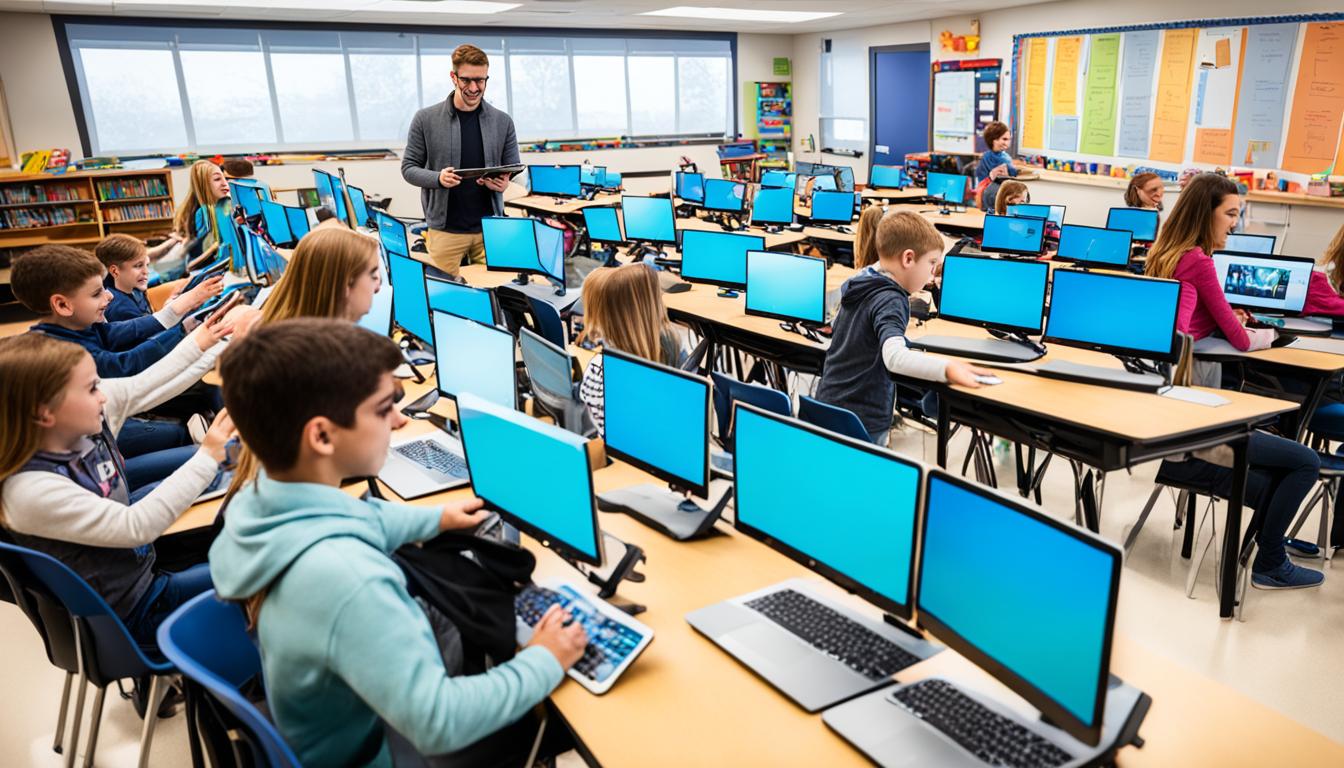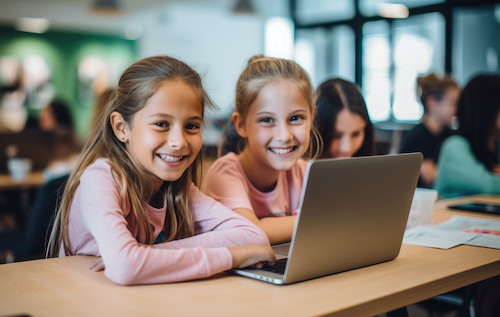Utilize Advanced AI Tools to Enhance Efficiency and Performance
Wiki Article
Necessary Resources for Organizations to Improve Their Approach to Technology Education
As establishments aim to enhance their technology education frameworks, the identification and execution of crucial sources come to be critical. Innovative curriculum styles that incorporate technology, together with reliable on the internet learning platforms, can substantially widen instructional access and interaction.Ingenious Educational Program Layouts
In today's swiftly evolving technological landscape, educators are significantly recognizing the demand for cutting-edge curriculum layouts that properly incorporate modern technology right into learning experiences. This combination is essential for preparing students for a future where digital proficiency is critical. Innovative curriculum styles include various instructional methods, making sure that innovation serves as a tool for boosting interaction and helping with deeper discovering.One efficient strategy is project-based understanding (PBL), where trainees take part in real-world problems, using technology to research study, collaborate, and present their searchings for. This technique not just promotes important reasoning however also encourages the advancement of soft skills such as teamwork and interaction. Furthermore, flexible discovering technologies can personalize the academic experience, providing to private understanding styles and paces.
Furthermore, interdisciplinary strategies that mix topics, such as integrating science and modern technology with the arts, aid produce an extra alternative understanding atmosphere. This fosters creativity and advancement, furnishing pupils with the skills needed to prosper in a complex, interconnected globe. Ultimately, innovative curriculum layouts are vital for growing a generation of students that are not only skillful in innovation but are also proficient trouble solvers and crucial thinkers.
Online Learning Operatings Systems
Numerous teachers are turning to online understanding systems as essential tools for boosting academic ease of access and interaction. These systems assist in a hybrid discovering environment that suits diverse understanding designs and paces, making education more comprehensive. They offer a series of resources, consisting of video clip lectures, interactive simulations, and discussion forums, allowing trainees to gain access to material from anywhere any time.Noticeable on-line understanding systems, such as Coursera, edX, and Moodle, offer establishments with the facilities needed to provide premium modern technology education and learning. These platforms can be tailored to align with specific curriculum objectives and pedagogical strategies, making certain that institutions can maintain their educational criteria while leveraging digital resources.
Furthermore, online discovering systems sustain cooperation among instructors and trainees, promoting a feeling of neighborhood and shared finding out experiences. Advanced analytics devices available on these platforms enable instructors to track student progress and interaction, promoting timely treatments when necessary.
Expert Development Opportunities
Continual expert advancement is critical for instructors looking for to stay abreast of emerging technologies and pedagogical methods in a quickly evolving instructional landscape (Make Money). To efficiently incorporate innovation into the classroom, instructors must actively go after opportunities that boost their abilities and understandingInstitutions should focus on providing seminars, training courses, and workshops concentrated on the most current technical advancements and mentor approaches. These programs can deal with different aspects of modern technology education and learning, including coding, electronic literacy, and making use of instructional software application. Additionally, partnering with local colleges and technology organizations can offer educators access to specialized training and resources.
Online expert advancement platforms additionally provide adaptability, permitting instructors to participate in self-paced discovering. Webinars and digital meetings can assist in understanding sharing amongst instructors worldwide, promoting a global perspective on innovation assimilation.
Furthermore, mentorship programs can link knowledgeable teachers with those brand-new to technology, promoting collective understanding and support. By developing a society of continuous understanding, institutions can equip teachers to accept innovative teaching techniques, eventually enhancing student engagement and success in innovation education. Investing in expert growth not just advantages instructors yet additionally significantly improves the finding out experience for students.
Collaborative Tools and Resources
Effective combination of modern technology in education and learning also counts on the usage of joint devices and sources that facilitate communication and team effort amongst educators and trainees. Such tools enhance engagement and cultivate a society of partnership, crucial for modern knowing settings. Platforms like Google Work Area and Microsoft Teams enable real-time file sharing, job monitoring, and smooth communication, allowing groups to interact effectively no matter of geographical barriers.Additionally, discovering management systems (LMS) such as Canvas and Moodle offer structured environments for collaboration, where instructors can develop online forums, assign team projects, and help with conversations. These systems not only simplify instructional distribution however also motivate peer-to-peer communication, necessary for developing critical thinking and analytical abilities.
Moreover, tools like Padlet and Trello can be utilized to picture concepts and take care of tasks collaboratively, enhancing project-based knowing experiences. By integrating these joint resources, organizations equip both pupils and instructors to contribute actively to their learning journeys. Eventually, the effective usage of collaborative devices not only improves the educational experience yet likewise prepares students to flourish in an increasingly interconnected world.
Community and Market Partnerships
Neighborhood and market collaborations play a vital function in Education boosting innovation education and learning by bridging the void in between academic understanding and practical application. These cooperations provide students with real-world experiences, enabling them to use class ideas to real challenges faced by organizations. By involving with neighborhood services and community organizations, universities can produce dynamic understanding atmospheres that foster innovation and skill development.

Furthermore, these alliances can cause source sharing, where organizations benefit from market experience, financing, and innovation. Such assistance not just improves academic offerings but also assists to cultivate a labor force that is well-prepared for the obstacles of the contemporary economy. Ultimately, the harmony produced with neighborhood and market partnerships is crucial for fostering a culture of constant understanding and adjustment in innovation education and learning, making sure that organizations continue to be receptive to evolving technical landscapes.
Verdict

One efficient approach is project-based understanding (PBL), where trainees engage in real-world issues, using innovation to study, team up, and offer their findings. Additionally, flexible knowing modern technologies can individualize the academic experience, catering to private discovering styles and speeds.
Moreover, mentorship programs can connect seasoned instructors with those brand-new to technology, advertising joint knowing and assistance. By developing a culture of constant knowing, institutions can equip instructors to accept cutting-edge teaching techniques, eventually boosting student interaction and success in innovation education and learning. Ultimately, the synergy created via neighborhood and sector collaborations is essential for fostering a culture of continuous knowing and adaptation in innovation education and learning, guaranteeing that organizations stay responsive to progressing technological landscapes.
Report this wiki page